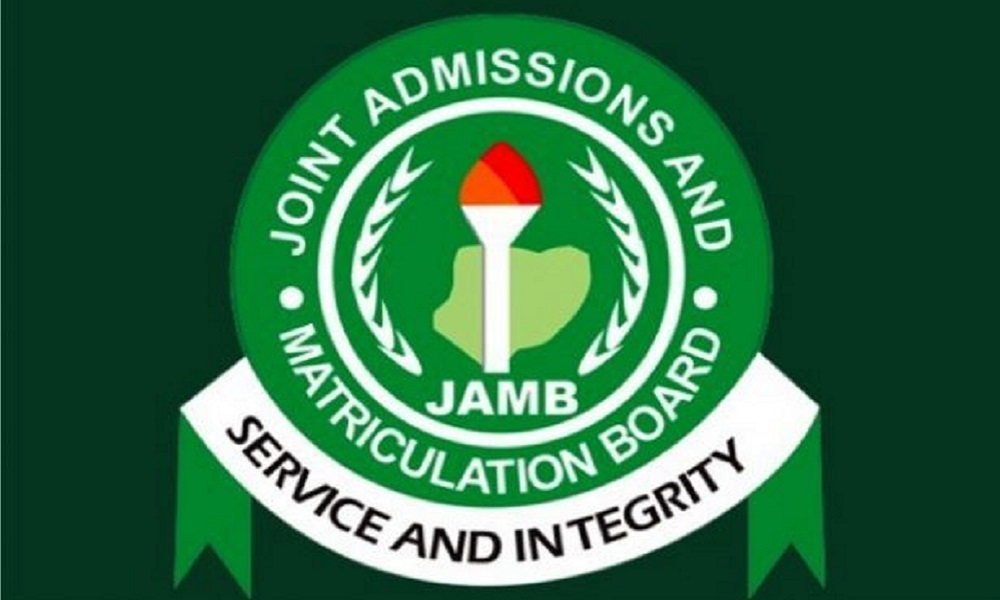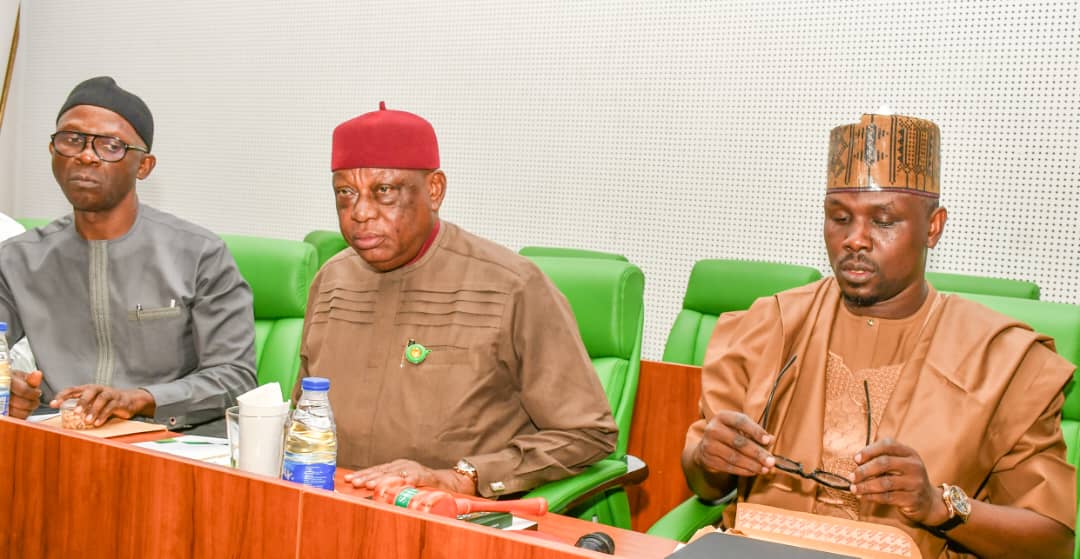News
Nigerians Say Social Media, Laziness, Hunger, Reasons For Poor JAMB Performance

Nigerians have identified social media addiction, hunger, and laziness as contributing factors to the poor performance of students in the recently concluded Unified Tertiary Matriculation Examination (UTME).
This is in response to a post made by Tribune Online on all social media platforms where Nigerians were asked to mention the possible reasons for students’ poor performance in the just concluded examination.
Tribune Online reports that The Joint Admission Matriculation Board disclosed that out of 1,989,668 candidates who registered for the exam, 1,402,470 scored below 200.
Reacting to this, Nigerians have pointed to issues such as excessive social media use, lack of motivation, and even food insecurity as significant factors influencing students’ poor performance.
A Facebook user, @Amb Olasile Sheriff commented, “The first thing is that people no longer have interest in education again as their aim is to just get any score get one course and get away with it,while the second one is that youth of nowadays are no more active again when it comes to educational stuff but but get more active in facing social media activities”
@Jacob Akuha said “Hunger or food cost and fuel scarcity can caused poor performance of students in just concluded JAMB exam.”
“When the country is hard and they just have to survive by any means how will they study enough to pass?”, @Takpe Doris added.
Adeboye Abiodun opined, “ If you get close to secondary school students of nowadays, what most of them discuss is how to make quick money through Yahoo. They don’t care about their studies. The generation believe school ‘na scam’. It will get worse if they are not reoriented”
Still reacting on Facebook, @Borokini Okunrin said, “Phone addiction…tiktok, Instagram, Twitter etc… laziness to read.”
“The children interest were more in Social media, yahoo,quick money than education even some parents are encouraging this”, @Mathew Oluwole Akinbode added.
News
Reps Push for National Security Trust Fund to Boost Intelligence Funding

By Gloria Ikibah
The House of Representatives has proposed the establishment of a National Security and Intelligence Trust Fund as a strategic solution to Nigeria’s security funding challenges.
Chairman of House Committee on National Security and Intelligenc, Rep. Ahmad Satomi, stated this at a public hearing on “A BILL FOR AN ACT TO ESTABLISH NIGERIAN SECURITY AND INTELLIGENCE TRUST FUND TO PROVIDE FUNDING FOR SECURITY RELATED ISSUES, APART FROM USUAL BUDGETARY PROVISIONS FROM THE FEDERATION, INTERVENE IN COMBATING SECURITY ISSUES IN NIGERIA AND FOR RELATED MATTERS”, on Tuesday in Abuja.
Rep. Satome who is sponsor of the bill emphasised that the current funding model for intelligence agencies was inadequate.
Rep. Satome stated that while California University operates on a $100 billion budget—30% of which is allocated to research and development—Nigeria’s entire security budget remains significantly lower despite its larger population and pressing security concerns.
According to the piece of legislation, the proposed trust fund is expected to provide alternative financial support for intelligence operations, reducing reliance on annual budgetary allocations. Funding sources for the trust include:
- 1% of the consolidated revenue from the Federation Account.
- Airspace revenue generated from Nigeria’s airspace.
- Unclaimed funds (still under debate due to constitutional concerns).
- Donations and gifts (some stakeholders suggest removing this option to prevent corruption).
The bill is seen as a crucial step toward strengthening Nigeria’s security architecture by ensuring sustainable and efficient funding for intelligence agencies.
News
Reps Push for More Colleges Of Education to Strengthen Nigeria’s Education Sector

The Speaker House of Representatives, Rep. Tajudeen Abbas, has stated that despite the 205 colleges of education which included federal, state, and privately owned is insufficient to address the country’s educational needs.
Speaking at a public hearing in Abuja on Tuesday, the Speaker emphasised that the rising demand for education in Nigeria makes it necessary to establish more colleges of education.
The Speaker who noted that human capital is the foundation of any society’s development, explained that while material resources are valuable, they remain untapped unless harnessed through human knowledge, skills, and innovation to drive national progress, social mobility, and economic growth.
He further stressed that education was central to human capital development, and a key way to sustain the education system was by continuously producing well-trained and highly skilled teachers for primary and secondary schools.
“To achieve this, we must strengthen teacher education in Nigeria by expanding access to quality institutions that will equip the next generation of educators,” he said.
Speaker Abbas added that the bills under review demonstrate the lawmakers’ collective commitment to ensuring that all regions of the country have fair access to quality teacher education.
According to Abbas, public hearings are a crucial part of the legislative process, giving opportunity for stakeholders to refine proposed bills, and that the discussions would help lawmakers better understand the education sector’s needs and expectations.
He reiterated the commitment of the House to inclusive governance and values stakeholder engagement, and encouraged policymakers, education experts, community leaders, and the public to actively participate by offering insights that could shape policies to strengthen Nigeria’s education system.
Chairman of the House Committee on Colleges of Education, Rep. Adamu Tanko, reaffirmed that education remains the foundation of national development, and assured that the House was committed to ensuring that every Nigerian has access to quality teacher education.
Tanko further highlighted that establishing new federal colleges of education is key to addressing gaps in teacher training, improving the education sector, and building a skilled workforce to drive national development.
He noted that the public hearing provides a platform for policymakers, education experts, and community leaders to engage in meaningful discussions.
House Leader and sponsor of ten related bills, Rep. Julius Ihonvbere, expressed concern over the shortage of qualified teachers in many schools across the country. He stressed the urgency of establishing more teacher training institutions to meet the demand for skilled educators.
Rep. Anamero Dekeri, who is sponsoring a bill to establish the Federal College of Education (Technical) in Ogute-Oke, Okpella, highlighted the importance of technical education in driving national development. Representing Etsako Federal Constituency in Edo State, he stated that the proposed institution would harness the area’s potential and contribute to workforce development.
News
Reps Advocate Tax Exemption, Better Support for Persons With Disabilities

By Gloria Ikibah
The Chairman House of Representatives Committee on Disability Matters, Rep. Bashiru Dawodu, has called for tax exemption for Persons With Disabilities (PWDs), insisting they should not be required to pay taxes.
Speaking at the signing of a Memorandum of Understanding (MoU) by PWDs in Abuja, Rep. Dawodu also urged the government to grant tax relief to companies employing PWDs and those manufacturing facilities for their use.
The Chairman who acknowledged the need for tax reforms identified loopholes in existing bills, and stated that the committee would push for tax credits and waivers for companies producing equipment for PWDs.
Dawodu also advocated scholarships for teachers involved in special education and the establishment of a disability trust fund to protect the interests of PWDs.
He expressed concern over the poor implementation of the 2018 Disability Act, which has a five-year moratorium, stating that both government agencies and the private sector have not diligently enforced its provisions. He revealed that the House was working on amendments to impose stricter penalties for non-compliance.
The lawmaker highlighted some key provisions of the Act, including accessibility to public buildings, transport terminals, education, and healthcare facilities. He noted that despite the creation of the Disability Commission, only 22 states have domesticated the Act, urging others to follow suit.
Dawodu criticized the inadequate budget allocation of about N2 billion to the Disability Commission, describing it as a sign of the government’s neglect of PWDs. He stressed the need for collaboration with NGOs and other organizations, noting that with over 35 million Nigerians living with disabilities, the country must do more.
Director of the PWD’s Potential Unhinged Project, Valentine Ugochukwu Zion, stated that the MoU includes a nationwide medical access support initiative for PWDs in underserved areas. He added that it also covers talent discovery, a reality TV show showcasing the resilience of PWDs, and an inclusive musical concert.
-

 Metro18 hours ago
Metro18 hours agoGunmen attack Edo farming communities kill dozens, destroy properties
-

 Metro18 hours ago
Metro18 hours agoMan takes girlfriend’s life while beating her
-

 News14 hours ago
News14 hours agoSEE Black Market Dollar To Naira Exchange Rate Today 26th February 2025
-

 News14 hours ago
News14 hours agoJust in: David Setonji May Become New LSHA Speaker Meranda To Step Down
-

 News17 hours ago
News17 hours agoNigeria ‘ll soon get accurate headcount as Tinubu sets up Census Committee
-

 News10 hours ago
News10 hours agoT-Plan Warns About Rising Drug Addiction Among Youths, Housewives
-

 News14 hours ago
News14 hours agoUniversity student dr0wns in Bayelsa creek over N300 bet
-

 News14 hours ago
News14 hours ago2027: APC hammers El-Rufai over att@ck on Tinubu, Ribadu






